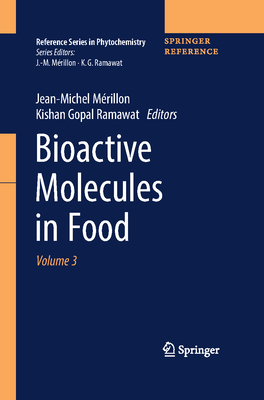The Social Psychology of Eating
Catellani, Patrizia, Carfora, Valentina
- 出版商: Springer
- 出版日期: 2024-07-01
- 售價: $5,710
- 貴賓價: 9.5 折 $5,425
- 語言: 英文
- 頁數: 164
- 裝訂: Quality Paper - also called trade paper
- ISBN: 3031350723
- ISBN-13: 9783031350726
海外代購書籍(需單獨結帳)
相關主題
商品描述
Our eating decisions are guided by several psychological dimensions: cognitive, emotional, value-based, social, and behavioural. The social psychology of eating helps us understand these dimensions and how we can promote healthy and sustainable eating to improve people's wellbeing. What is most important in deciding what we want to eat? What drives people to go vegan? Do we tend to eat more when we are nervous? Does it change our behavior when we sit at the table with others? Why do we put off starting the diet until the next week? How does online and offline communication influence our eating behaviour? Is it possible to help people change their eating habits thanks to artificial intelligence? These and other questions are answered in this book, with up-to-date literature references and pointers to the most promising developments in the field. An essential text for undergraduate and graduate students, as well as researchers in the fields of psychology and nutrition.
作者簡介
Patrizia Catellani is a full professor of Social Psychology at the Catholic University of Milan, Italy. She is director of PsyLab (Psychology, Law and Policy Lab). She is a member of the Scientific Advisory Board of the European Social Survey (ESS) and of the PNRR Fostering Open Science in Social Science (FOSSR) research infrastructure. Her research focuses on reasoning, decision making, and communication in different social and political contexts. She has explored how food and health communication can be made more effective in promoting healthy and sustainable purchasing and consumption decisions. An extension of this research direction focuses on the integration of social psychology and artificial intelligence. The goal is to develop digital communication systems that promote health, well-being, and sustainability through personalized framing. Quick profiling is used to identify optimal communication strategies for behaviour change, taking into account individuals' resources and motivations. Related research areas have explored the impact of prefactual communication aimed at promoting public policy, for example on climate change mitigation and adaptation, by strategically framing possible future scenarios to appeal to and persuade audiences. Other research areas explore how people develop different representations and alternative explanations of events with political, legal, or personal relevance. The focus is on counterfactual reasoning and communication ("If... then..."), and on the conditions that can promote a complete and truthful analysis of events or, conversely, a strategic representation of the past that highlights possible better or worse alternatives that are compatible with one's own worldview. She is the author of some one hundred and thirty publications, including journal articles and books. The detailed profile and all activities can be found at www.patriziacatellani.com
Valentina Carfora is a researcher in Social Psychology at the Catholic University of Milan, Italy, and a cognitive behavioural therapist. Her research activity focuses on predicting and promoting healthy and sustainable behaviours, especially related to food choices (e.g., reduced meat consumption, regular consumption of fruits and vegetables). Her main activity is concerned with: socio-cognitive models to explain healthy, environmental and purchasing behaviour; persuasive communication, with particular reference to assessing its effectiveness in changing behaviour (affective messages, cognitive messages, normative messages, self-monitoring messages); personal and social identity, by examining the processes of identity construction and their power to support behaviour change; the role of anticipatory emotions in predicting behaviour change; the role of social norms in promoting sustainable eating habits; the use of artificial intelligence to design tailored communication to promote healthy and sustainable behaviours. She has participated in and coordinated several research projects funded by the European Union, the Lombardy Region, the University of Naples "Federico II", and the Catholic University of Milan. She is the author of about 40 scientific publications, including journal articles and book chapters. She edited the eBook "Mind the Sustainable Food: New Insights in Food Psychology" published by Frontiers in Psychology (2021). She is also a member of the Associazione Italiana Psicologia (AIP) and the Associazione SIPSA (Società Italiana di Psicologia della Salute).
作者簡介(中文翻譯)
帕特里齊亞·卡特拉尼(Patrizia Catellani)是義大利米蘭天主教大學的社會心理學全職教授,並擔任心理學、法律與政策實驗室(PsyLab)的主任。她是歐洲社會調查(European Social Survey, ESS)科學諮詢委員會的成員,以及PNRR促進社會科學開放科學(FOSSR)研究基礎設施的成員。她的研究專注於不同社會和政治背景下的推理、決策和溝通。她探討了如何使食品和健康溝通更有效,以促進健康和可持續的購買及消費決策。這一研究方向的延伸專注於社會心理學與人工智慧的整合,目標是開發促進健康、福祉和可持續性的數位溝通系統,透過個性化的框架進行。快速剖析用於識別行為改變的最佳溝通策略,考慮到個體的資源和動機。相關研究領域探討了旨在促進公共政策的前設溝通的影響,例如氣候變遷的緩解和適應,通過策略性地框架可能的未來情境來吸引和說服受眾。其他研究領域則探討人們如何發展對具有政治、法律或個人相關性的事件的不同表徵和替代解釋。重點在於反事實推理和溝通(「如果...那麼...」),以及促進事件的完整和真實分析的條件,或者相反,戰略性地表現過去,突顯與個人世界觀相容的可能更好或更差的替代方案。她是約一百三十篇出版物的作者,包括期刊文章和書籍。詳細的個人資料和所有活動可在 www.patriziacatellani.com 查詢。
瓦倫蒂娜·卡爾福拉(Valentina Carfora)是義大利米蘭天主教大學的社會心理學研究員及認知行為治療師。她的研究活動專注於預測和促進健康及可持續行為,特別是與食品選擇相關的行為(例如,減少肉類消費、定期食用水果和蔬菜)。她的主要活動涉及:社會認知模型以解釋健康、環境和購買行為;說服性溝通,特別是評估其在改變行為方面的有效性(情感信息、認知信息、規範信息、自我監控信息);個人和社會身份,通過檢視身份建構的過程及其支持行為改變的力量;預期情感在預測行為改變中的角色;社會規範在促進可持續飲食習慣中的作用;利用人工智慧設計量身定制的溝通以促進健康和可持續行為。她參與並協調了多個由歐盟、倫巴第大區、那不勒斯「費德里科二世」大學及米蘭天主教大學資助的研究項目。她是約40篇科學出版物的作者,包括期刊文章和書籍章節。她編輯了由《心理學前沿》(Frontiers in Psychology)於2021年出版的電子書《注意可持續食品:食品心理學的新見解》。她也是意大利心理學協會(Associazione Italiana Psicologia, AIP)和意大利健康心理學會(Associazione SIPSA, Società Italiana di Psicologia della Salute)的成員。











